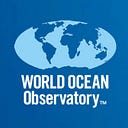The Future of Aquaculture, part one
A series exploring specific initiatives, novel technologies and other advancements to improve efficiency and safety of aquaculture as a positive contribution to out future food supply and global health
CSIRO Science, Creative Commons
If we do not do something urgently to counter pressure through consumption and illegal fishing, we will face a crisis in protein supply to feed the growing world population, an estimated 40% of whom today are reliant on the sea food as their essential source of protein.
We have exhausted certain areas, reduced certain species to the brink of extinction, and despite all the scientific data, regulation and policy, made insufficient progress toward conservation and protection of yet another natural resource on which we rely. Pretty simple, and yet there is not much measure of success to show for our awareness of the problem. As a result, we will inevitably turn to aquaculture, in the water or on land, to compensate for this loss and maintain seafood supply to meet the demand of the future.
Aquaculture is not new news. Much of the salmon we purchase at the supermarket is farmed in Norway or Chile. Most of our oysters and mussels are farmed. Kelp and other seaweed farms are growing by the day. New on-land aquaculture plants are proposed. There is much controversy, some opposition righteous and justified, some self-interested, some fearful of change. There is every reason to be careful that the solution does not exacerbate the problem, that protections and disease, catastrophic death or release, interference with traditional fishing patterns, and protections against polluting waste, harmful by-products, and corrupted freshwater sources on which aquaculture depends. The usual counter arguments are made: new local employment, property tax generation, local endeavor to compete with foreign producers, and the fundamental assertion that, without aquaculture, we will be priced out of a supply that will affect our diet and public health.
My opinion is that aquaculture and associated value-added products are inevitable, and with all responsible caveats taken, must be welcomed and encouraged. In truth, this is already reality. The UN Food and Agriculture Organization has reported that, since 2013, aquaculture production has already exceeded that of wild fisheries, whether industrial or artisanal. Enormous progress has been made in closing the reproductive cycle, species diversification, live and formulated feeds, selective breeding, disease management, water management, and other technical advancements that have addressed initial, justifiable concerns. Should we be cautious? Of course. Should we ignore this advancement out of recalcitrance and fear? I hope not.
The other day in my doctor’s office I noticed a poster on the wall cautioning pregnant women against consuming certain wild fish, swordfish for example, as containing mercury and other polluting elements that might endanger both mother and fetus. We need to understand this too as a status quo condition: that we are already overfishing wild species that we have already contaminated by detrimental activity on land. This is beyond irony when we understand the potential effect on the health of an unborn child. Surely, we would do well to inform ourselves and to understand the pros and cons of both wild fishery and aquaculture before we close our minds for or against one approach over another.
Over the next few weeks I would like to explore disruptive technologies for aquaculture, specific initiatives and novel molecular technologies for genetic improvement, offshore aquaculture, recirculating aquaculture systems and renewable energy, alternative aquafeed ingredients, oral vaccines, and other advancements to increase the efficiency and safety of aquaculture as a positive contribution to food supply and global health. I will rely mostly on a paper published in May 2021 in Aquaculture and Fisheries (Volume 6, Issue 3), a peer reviewed academic journal, by Kangning Yue and Ybang Shen, professors at James Cook University in Singapore.
The ocean will provide, if we can focus our ingenuity on the most important things. It will give us energy, freshwater, food, medicine, and cultural meaning, but only for as long as we respect it for its generosity and its solace. Is it possible, now, that we avoid our old ways of consumption until there is no more to give? Is it possible that we serve the ocean equally to its service to us? Let’s not close our minds to change so that change does not overwhelm us.
PETER NEILL is founder and director of the World Ocean Observatory, a web-based place of exchange for information and educational services about the health of the world ocean. He is also host of World Ocean Radio, upon which this blog is inspired. World Ocean Radio celebrates 12 years this year, with more than 600 episodes produced to date.
